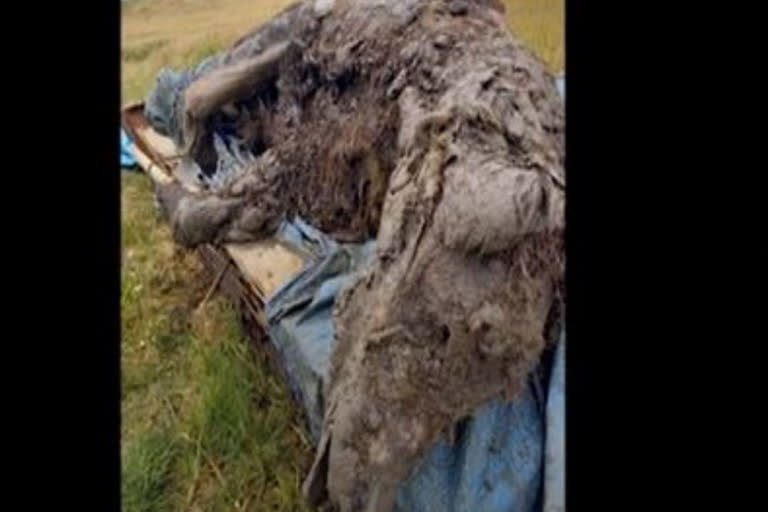Great Lyakhovsky Island/Moscow: The remains, revealed by the melting permafrost, were discovered on Great Lyakhovsky Island.
Intact Ice Age cave bear found in Arctic Russia
- The island is the largest of the Lyakhovsky Islands, part of the New Siberian Islands archipelago between the Laptev Sea and the East Siberian Sea.
- Previously, scientists only had been able to discover the bones of cave bears that became extinct 15,000 years ago.
- The North-Eastern Federal University in Yakutsk is the premier center for research into woolly mammoths and other prehistoric species.
- Scientists there have hailed the find as ground-breaking.
- The lead researcher at the Zoological Museum of Moscow's State University echoed their excitement, saying the bear's discovery was "unique".
- A preliminary analysis indicated that the adult bear lived 22,000 to 39,500 years ago.
- Recent years have seen major discoveries of mammoths, woolly rhinos, Ice Age foal, several puppies, and Cave Lion cubs as the permafrost melts.
